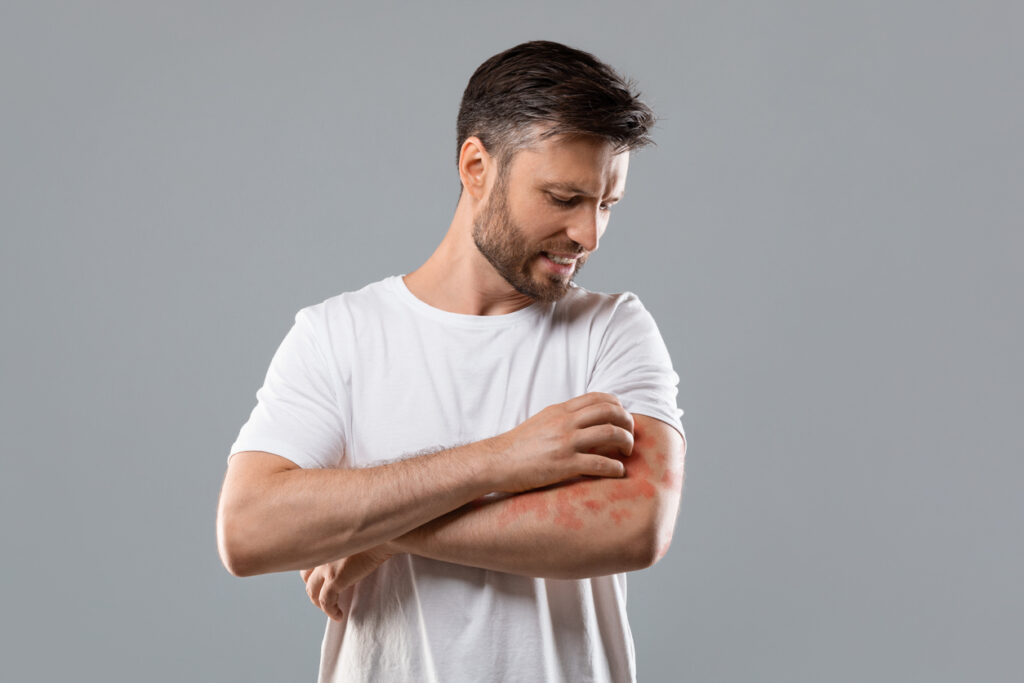Several new therapies have received a “strong” recommendation for the management of adult atopic dermatitis (AD) from the American Academy of Dermatology (AAD) in a focused guideline update.
The list includes roflumilast cream 0.15% (Zoryve, Arcutis), tapinarof (Vtama, Organon), lebrikizumab (Ebglyss, Lilly), and nemolizumab (Nemluvio, Galderma).
Specifically, tapinarof, lebrikizumab, and nemolizumab (with concomitant topical therapy) were recommended for adults with moderate-to-severe AD. Roflumilast 0.15% was the only product that received the nod for mild-to-moderate AD.
Focused Update
In 2023 and 2024, the AAD published guidelines on the use of topical and systemic therapies for the management of atopic dermatitis (AD) in adults. Since the publication of these guidelines, several novel therapies have been approved to treat AD. The focused update incorporates these newly Food and Drug Administration (FDA)-approved topical and biologic therapies into existing guidelines.
“Additional long-term efficacy and safety data, and data on patient-reported outcomes in real-world settings, are needed to provide additional insights into the efficacy, effectiveness, and safety of these therapies for the management of AD,” update authors wrote. “Comparative studies of these medications and available standard AD therapies would provide an understanding of the role of these therapies in the armamentarium of AD treatments.”
“The AAD’s focused update highlights therapies that meet rigorous standards for efficacy, safety, and tolerability for adults living with AD,” says Patrick Burnett, MD, PhD, FAAD, Chief Medical Officer at Arcutis, in a news release. “The inclusion of ZORYVE in these recommendations validates what healthcare professionals have already experienced with ZORYVE in their practice—a next-generation, steroid-free topical that delivers meaningful improvement for people with AD. It marks important progress in providing individuals with AD and their healthcare providers evidence-based choices that are suitable for all areas, including sensitive and hard-to-treat areas of the body.”


